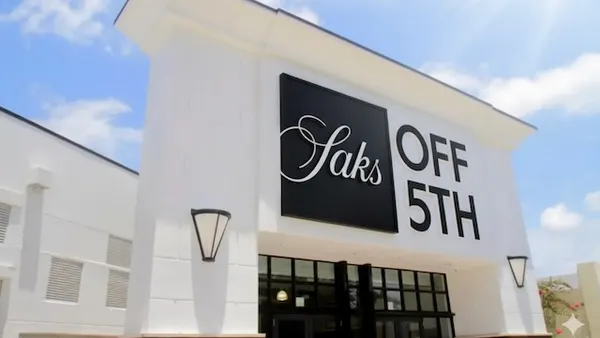Dive Brief:
- Express Inc. CEO Stewart Glendinning in a memo Wednesday tried to ease bankruptcy concerns following a Monday report from The Wall Street Journal that said the retailer had retained debt restructuring firms and that a filing could be imminent.
- Glendinning said the retailer is taking action and working with vendors and landlords to preserve its short-term liquidity while it awaits a “significant” payout from the IRS under the Coronavirus Aid, Relief and Economic Security Act, according to the internal memo obtained by Retail Dive.
- The company is seeking to expedite the $52 million payment by breaking it into two installments — a $43 million payment, which all the stakeholders agree to, and a $9 million payment, which was under review as of late November. Express also anticipates a $5 million reduction in its 2022 income taxes. The CARES Act payout is expected to provide “a substantial cash infusion into the business.”
Dive Insight:
Glendinning has led the company since September following the resignation of CEO Tim Baxter. In his note to employees, Glendinning sought to downplay concerns that emerged this week about the company’s liquidity and long-term outlook.
“Headlines rarely tell the full story, and I want you to be armed with the facts,” Glendinning said. “We have made tremendous progress in our transformation over the past several months: We implemented a series of cost-savings initiatives, made changes to our workforce and streamlined our processes to enhance the efficiency of our operations.”
Interim Chief Financial Officer Mark Still said during the company’s third-quarter earnings call in November that approval from the IRS and the Congressional Joint Committee on Taxation is required for the disbursal of the CARES Act payments. Regarding the CARES Act payments, a source close to the company said it is now mainly a question of timing on when the cash will be received.
Express has not had any discussions with lenders regarding possible debt restructuring, the source told Retail Dive. Additionally, Kirkland & Ellis has worked with Express since the company went public in 2010, and restructuring advisory firm M3 was brought on at the request of lenders when the company entered a previous loan, the source said.
“We have acted with urgency and accomplished a lot in a short period of time, and I am grateful for your efforts,” Glendinning said in the memo. “I also recognize that all of this change was not easy, but it was necessary to position our organization for the future.”
The retailer has initiated several changes to improve performance since the height of the pandemic when consumer interest in Express’ core offering — business casual apparel — fell as work-from-home arrangements surged.
WHP Global closed on a strategic partnership with Express last January. The two entities formed an intellectual property joint venture where WHP contributed $235 million for a 60% stake, while Express retained 40%. In November the two entities announced plans for express to grow internationally, expanding into Central America and Mexico.
Alongside its namesake brand, the company also operates Bonobos, which it acquired with WHP Global for $75 million, and UpWest.
The company in August initiated a reverse stock split, which decreased outstanding shares but enabled the company to regain listing compliance with the New York Stock Exchange after receiving a delisting warning. At the same time, Express also cut 150 jobs.
The retailer in late November also lowered its full-year guidance for 2023. It now expects net sales to reach $1.84 billion and $1.87 billion, down from previous guidance of $1.9 billion to $2 billion.















